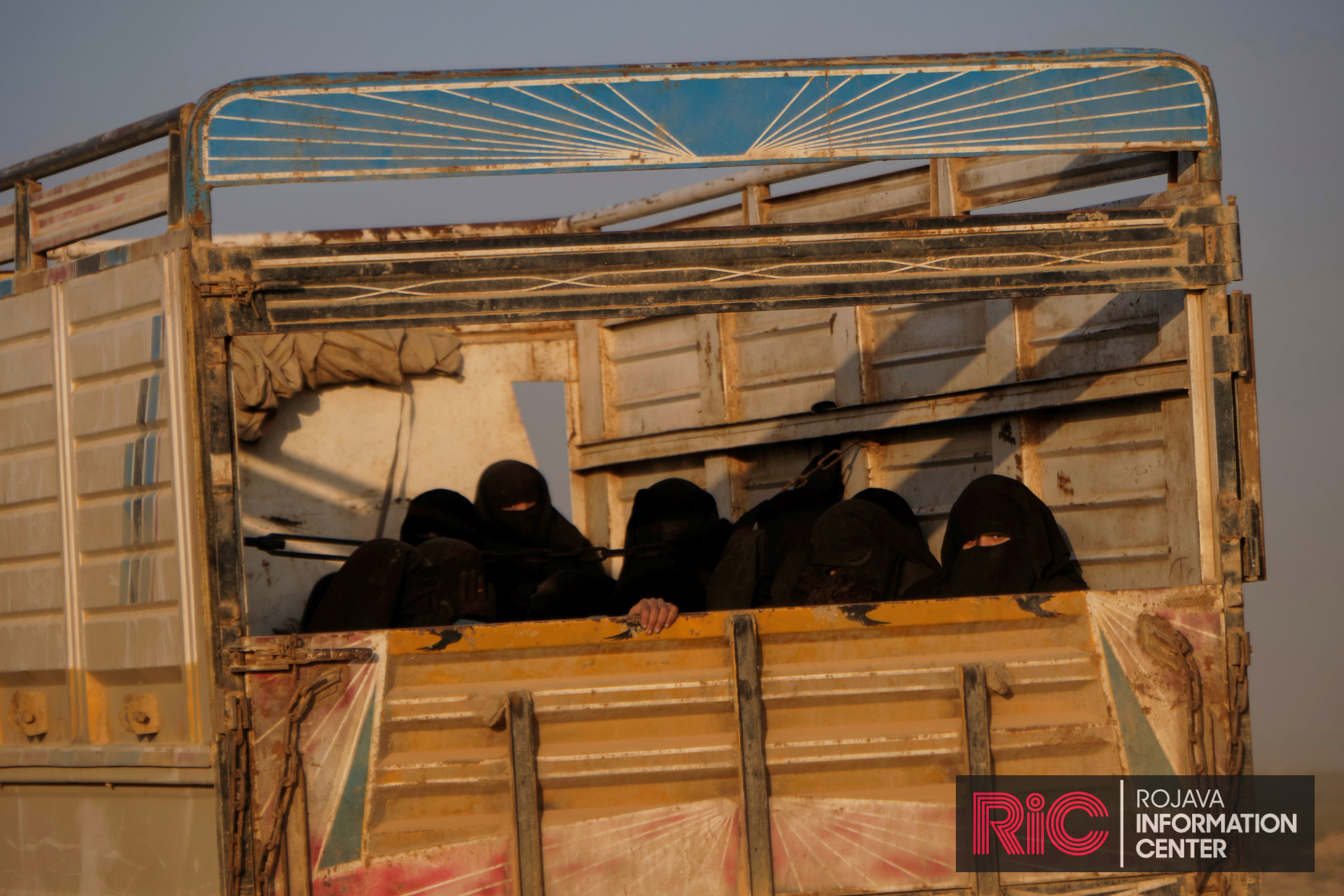Turkey begins deporting ‘foreign terrorist fighters’ to Europe and the US
Turkey's government intends to deport at least 25 citizens of Denmark, France, Germany, Ireland and the US
Turkey deported three “foreign terrorist fighters” on Monday, November 11 with more than 20 Europeans, including French and German citizens, in the process of being expelled to their countries of origin.
Turkey’s interior ministry said it had deported an American and a Dane, while Germany confirmed that one of its citizens had also been expelled.
Seven more Germans were due for deportation on Thursday, the Turkish ministry said, while 11 French, two Irish and at least two more German citizens were also being processed.
Turkey has criticized Western countries for refusing to repatriate their citizens who joined Islamic State in Syria and Iraq, and for stripping some of them of their citizenship.
Interior Minister Suleyman Soylu said last week that Turkey had nearly 1,200 foreign ISIS members in custody, and had captured 287 during its recent operation in northern Syria.
“There is no need to try to escape from it, we will send them back to you. Deal with them how you want,” Soylu said on Friday.
A German foreign ministry official confirmed the legal proceedings involving the 10 German nationals in Turkey, saying they included three men, five women – at least two who lived in Syria – and two children.
Germany’s interior ministry said “it did not wish to oppose the return of German citizens” and that authorities were still verifying the identities and the reasons for their repatriation.
French suspects ‘secretly’ repatriated from Turkey since 2014
A French official told AFP that the French nationals being expelled were mostly women.
Some had been in Turkey for a long time, while others arrived recently, the official added, without giving further details.
These 11 will be tried, the official said, adding that discussions were under way to determine whether their arrival will be handled by civil or military airport authorities.
A French foreign ministry source told AFP at the weekend that a number of suspects had been quietly repatriated under a 2014 agreement with Turkey, and that the current deportations were nothing new.
“Jihadists and their families are regularly sent back to France and arrested as they leave the airplane. Most of the time it is done secretly. The news is not published, or released much later,” the source said.
Netherlands must help children of ISIS women return
Meanwhile, a Dutch court ruled on Monday that the Netherlands must “must actively commit itself to repatriate” children of women who joined ISIS but the mothers themselves need not be taken back.
The ruling, by a judge at The Hague’s district court, came after lawyers representing 23 women launched a lawsuit last week demanding the Netherlands return them and their 56 children from detention camps in northern Syria.
At the same time “the state has to take measures, as far as possible, to protect these Dutch children, even if these children find themselves in another country,” he said, adding that the government should use all available options available, including seeking the help of other states.
Children in camps such as al-Hol in northeastern Syria were at risk of being killed by shelling of the camps, or being subjected to sexual abuse, and were already suffering from the lack of sanitation, medical care and adequate food, the judge said.
Most of them are younger than six.
But they “are the victims of their parents’ actions” and therefore the Dutch government did not have a responsibility to return their mothers, the judge added.
“These women knew that the organisation they joined was guilty of atrocious and serious crimes,” the court said in a statement.
There are 15 Dutch men, 35 women and 90 children being held in camps by the Syrian Democratic Forces after they captured the last territory held by ISIS in March.
Last month, two women who joined ISIS reported to the Dutch embassy in Ankara and asked for consular assistance to return to the Netherlands after escaping from Al-Hol camp.
The Dutch government said it would first wait to see whether the women would be prosecuted by Turkish authorities.
The Dutch ruling follows an earlier court case which resulted in Belgian authorities being ordered to repatriate a woman who joined ISIS and her two children from Roj camp in Syria.
‘Turkey is not a hotel’ for ISIS members
Turkey has lately increased pressure on Europe to take responsibility for the problem.
“Turkey is not a hotel for Daesh members,” Soylu said last week, using an Arabic acronym for ISIS.
The returns follow the October launch of Operation Peace Spring, Turkey’s military offensive against Kurdish fighters in northern Syria. Backed by Syrian proxy forces, Turkey aims to push the SDF and its predominantly-Kurdish YPG component south.
The YPJ forms the backbone of the U.S.-led Coalition-backed SDF who fought the ground war against ISIS in northern and eastern Syria, but Turkey considers it a terrorist group inextricably linked to the Kurdistan Workers’ Party (PKK) which has fought a decades-long insurgency in Turkey.
The SDF is holding thousands of ISIS fighters and their families. Turkey said it would take control of detainees in areas that it seized, but demanded greater assistance from Europe.
It remains unclear, however, whether Turkey will be able to repatriate those who have lost their citizenship.
Although the 1961 New York Convention made it illegal to leave people stateless, several countries, including Britain and France, have not ratified it, and recent cases have triggered prolonged legal battles.
The United Kingdom alone has stripped more than 100 people of their citizenship for allegedly joining jihadist groups abroad.
Details emerge of ISIS families taken by Turkey-backed Syrian rebels from Ain Issa camp
With reporting from AFP













One Comment